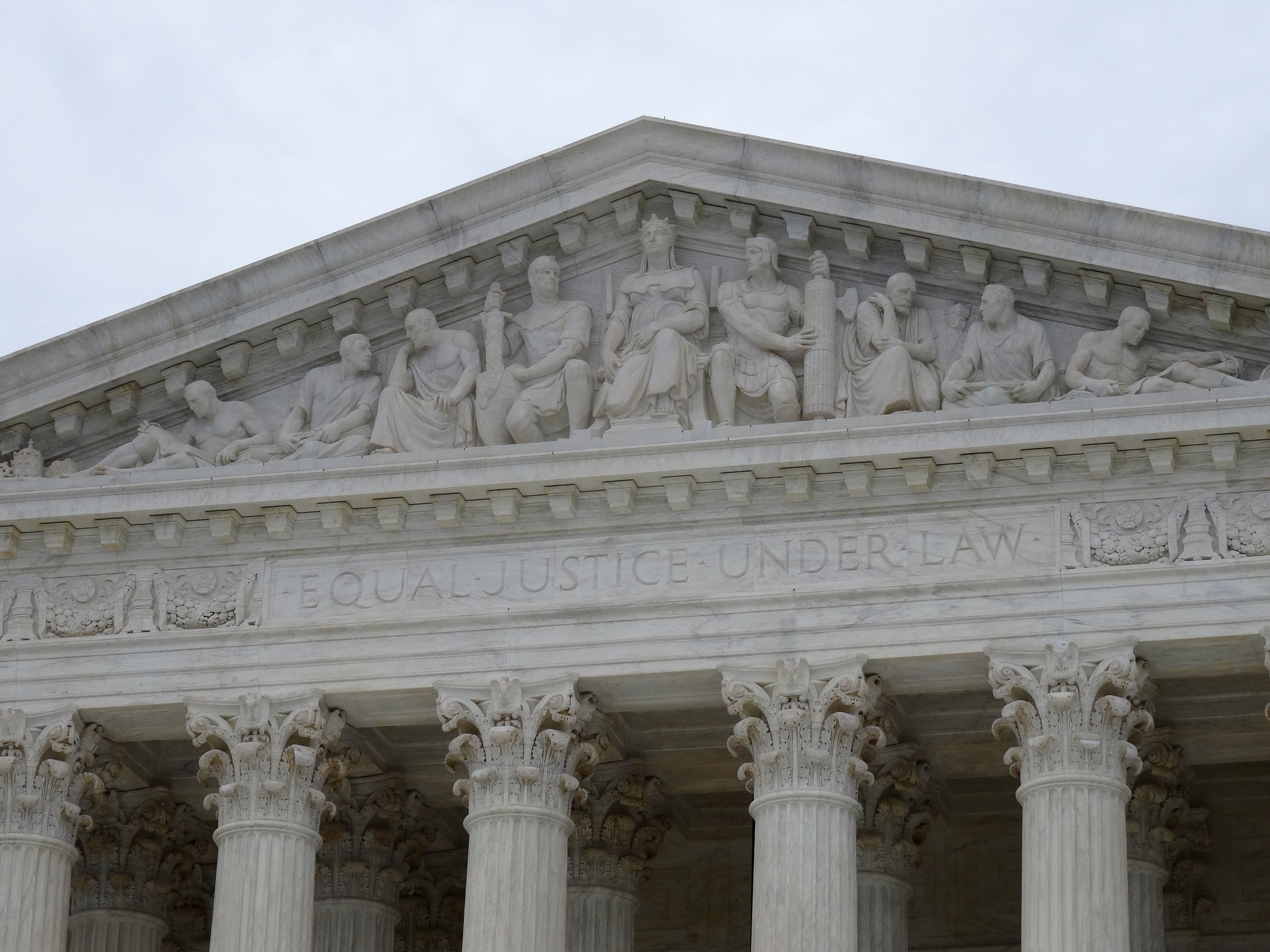EMERGENCY DOCKET
Court refuses Florida’s request to reinstate anti-drag law

on Nov 16, 2023 at 5:26 pm

A divided Supreme Court on Thursday denied Florida’s request to allow it to temporarily enforce a law that makes it a misdemeanor to allow children at drag performances. The brief unsigned order means that the state cannot apply the law anywhere in the state while a Florida restaurant’s challenge to the law continues.
Three justices – Clarence Thomas, Samuel Alito, and Neil Gorsuch – indicated that they would have granted the state’s application, but they did not provide any explanation for their votes.
Justice Brett Kavanaugh penned a three-page statement, joined (with the exception of one footnote) by Justice Amy Coney Barrett, in which he explained that the court had properly denied the state’s request because the justices are unlikely to grant review and take up the issue that the state had challenged at this stage of the proceedings.
Florida Gov. Ron DeSantis signed the law, known as the Protection of Children Act, in 2023. The law makes it a misdemeanor to admit a child to “adult live performances,” which are in turn defined as one that includes, among other things, “the lewd exposure of prosthetic or imitation genitals or breasts.” The law is widely regarded as targeting drag shows.
Hamburger Mary’s, an Orlando restaurant chain that hosts drag show performances, including “family friendly” shows, went to federal court to challenge the constitutionality of the law, arguing that it violates the First Amendment. U.S. District Judge Gregory Presnell barred Florida officials from enforcing the law anywhere in the state, concluding that it violates the First Amendment and the due process clause.
When the U.S. Court of Appeals for the 11th Circuit declined to put Presnell’s order on hold to the extent that it applies beyond Hamburger Mary’s, the state came to the Supreme Court on Oct. 19, asking the justices to do so while its appeal of Presnell’s ruling moves forward.
Florida Solicitor General Henry Whitaker told the justices that Presnell’s order sweeps too broadly: He blocked the state from enforcing the anti-drag law anywhere in Florida, when he could have simply entered an order barring any prosecution of Hamburger Mary’s. Presnell’s order, Whitaker wrote, “inflicts irreparable harm on Florida and its children by purporting to erase from Florida’s statute books a law designed to prevent the exposure of children to sexually explicit live performances.”
Hamburger Mary’s urged the justices to leave Presnell’s order in place. The restaurant argued that the state would not be harmed by the order, because other state laws already bar children from seeing sexually explicit materials. Moreover, the restaurant added, the state’s contention that it would be seriously harmed if the law remains on hold statewide is belied by its failure to seek to fast-track its appeal in the 11th Circuit, where the state has in fact sought two extensions of time to file its opening brief.
And contrary to the state’s assertion, it is not enough to simply bar the state from enforcing the drag ban against Hamburger Mary’s, the restaurant asserted, because the restaurant does not run “and present its performances in a vacuum.” Because the same artists who perform at Hamburger Mary’s also perform elsewhere in the state, the restaurant explained, other venues “could be subject to penalties under the Act for the same performances by the same performers” unless the drag ban is blocked statewide.
In a brief order on Thursday afternoon, the justices turned down the state’s request. In his statement, Kavanaugh noted that although the state “strongly disagrees” with the district court’s conclusion that the law violates the First Amendment, Florida “does not raise that issue” in its filings in the Supreme Court. Instead, Kavanaugh noted, the state was simply seeking to be able to enforce the law against entities that are not a party to the litigation. Whether district courts have the power to enter an order that bars the government from enforcing a law against non-parties is “an important question that could warrant our review in the future,” Kavanaugh acknowledged. But because of the context in which the question arises – a First Amendment case contending that a law sweeps too broadly – this case is an “imperfect vehicle” to consider the procedural question, Kavanaugh concluded, and the court was therefore correct to deny review.
Barrett joined Kavanaugh’s opinion except for one footnote, in which Kavanaugh observed that the question of whether district courts can enter an order prohibiting the government from enforcing a law against non-parties is a separate question “from the issue of a court’s setting aside a federal agency’s rule under” the federal law governing administrative agencies.
This article was originally published at Howe on the Court.


